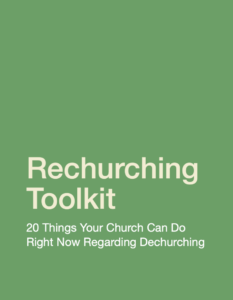In Romans 12, Paul instructs believers to share in the needs of the saints and pursue hospitality. This is the same call for believers today—to help care for the people in our communities and show Christlike love through hospitality. But what does this actually look like in our various cultural contexts and seasons of life?
In this episode of Glo, Blair Linne, Aixa de López, Sharon Dickens, and Soojin Park delve into the biblical foundations of hospitality and its distinction from mere entertainment. They discuss how hospitality is a form of worship and why financial limitations shouldn’t hinder our gracious care toward others. The hosts also share personal examples of what hospitality looks like in their own unique backgrounds. This conversation reminds us we can all show Christ’s love through the practice of hospitality, no matter where we are in the world.
Episode time stamps:
- Share with the saints in their needs (0:00)
- What is biblical hospitality? (4:26)
- The humble heart and hospitality (5:49)
- Entertainment vs. hospitality (8:55)
- Hospitality as worship (12:48)
- When not to have someone in your home (15:37)
- How to be hospitable as a single woman (17:10)
- Showing hospitality in your cultural context (19:27)
Transcript
The following is an uncorrected transcript generated by a transcription service. Before quoting in print, please check the corresponding audio for accuracy.
Blair Linne
There’s a scripture in Romans 1213, which says, share with the saints in their needs, pursue hospitality. And I think that it just sums it up in the sense of like, bearing one another’s burdens, that it’s not just providing food because you can provide the food but how do you care for the soul? How do you meet the person where they are to say, I know you have a need, because I have need, and we’re in this together. And so how can I love you? How can I care for you? So it seems like there’s an affection that’s attached to hospitality, there’s a love there that’s required.
Well, ladies, we’re just grateful and excited to be able to talk some more for glow, our podcast from the gospel coalition Podcast Network, where for women from four different parts of the world gathered together to talk about God and His work in our lives and ministries, and around the globe. And so today, we’re gonna be talking about how to receive others with hospitality. Before we jump in, though, why don’t you guys just share your name for those who are listening, where you were born and where you’re from where you currently live?
Aixa De Lopez
Okay, my name is Aixa de Lopez. I’m from Guatemala and I live in Guatemala City. Awesome.
Sharon Dickens
I’m Sharon Dickens. I was born in Edinburgh, and I’m from Edinburgh.
Soojin Park
My name is Soojin Park. I was born in Seoul, Korea. And now I live in Northern Virginia.
Blair Linne
And I’m Blair Linne here from the United States. I was born in Michigan, raised in California, and now live in Philadelphia, Pennsylvania. And as we gather together to have these conversations, sometimes when women gather together to have or engage in hospitality, sometimes the lines can get crossed, it’s kind of hard to get on the same page, I have a friend who actually leads women’s ministry at a church and she has a lot of women from different nations at her church, and they’re getting together for hospitality. And one of the women said, you know, I want everyone to bring hors d’oeuvres. And there was a sister. I don’t remember the country she’s from in Africa who bought a rice dish. That was her contribution. And the woman who said she wanted them to bring more d’oeuvres got upset. I said, hors d’oeuvres. And the woman from Africa is like, well, this is what we bring traditionally, you know, and my friend kind of had to get in the middle and say, Well, what is the whole goal? What’s the purpose? Why are we doing this? Right? Wow. And I think sometimes we can miss the goal. First, Peter four nine says, show hospitality to one another without grumbling. So it’s, it’s caring for people you regularly see a no. But then also we see Jesus. Talk about our love for strangers, caring for those that you don’t know, in Matthew 25, he says, you know, he says, when I was hungry, you gave me food. When I was thirsty, you gave me drink. When I was a stranger, you welcomed me. Truly, I say to you what you did to the least of these my brothers you did unto me. So we see here this love for stranger treating a stranger like a friend. And I guess the root word that we find in hospitality is what we find in like hospital hostel or hotel, right? So I’m just wondering, as you guys, have you read the Scripture, what Scriptures have come to mind as you’ve thought about like, caring for others being hospitable, in a sacrificial way?
Soojin Park
Yeah. For me, there’s one passage that I remember from seminary that really stood out for me is Isaiah 58. And so in that chapter of the prophet Isaiah is speaking to the nation. And he’s talking about true fasting versus false fasting, so kind of true worship and false worship. And he begins by saying false worship is you doing all the religious things and not caring for the well being of others. And then the second half, he talks about true fasting through worship, and he says, is it’s not the fast that I choose. And then verse seven isn’t not to share your bread with the hungry, and bring the homeless poor into your house, when you see the naked to cover him, and not to hide yourself from your own flesh. So I think that really convicted me that you know, to have true worship is have true hospitality, which is not just to welcome people not just to entertain but to meet a need to meet the needs of others. And that’s what true fasting True worship is.
Aixa De Lopez
Totally. When you mentioned hospitality, I think it’s a very good point to make that it’s something in our head goes to the stereotypical image of you opening up your home to do like a dinner party, which is part can be part of hospitality, but I go back to the way the Lord showed up on earth. And the way that he from the start was so intentional in asking for hospitality, even for himself and his little family. and how it was, you know, upon strangers to make it safe for baby to be born. And of course, biblical hospitality made it possible for the kingdom to advance because there was no hotels, no restaurants. So you depended on the kindness of other believers and other cities. But I think it’s a statement everything that the Lord willed to happen while he was in the flesh. And in always, there’s no loose end. And so in the way he showed up in the way, he asked us to welcome him is a very, very potent statement for us today, in the way that we’re supposed to show each other, the love of, of himself.
Blair Linne
That’s, that really strikes me just thinking about Jesus, the preeminent one, who owns everything, humbling himself in this way that he has need, as a baby need from his parents, but also need, as you said, needing a place to go, you know, to be born. It just strikes me. And we are so needy, but I think we often feel like, Oh, we got it together, we’re doing all right. You know, and we often don’t have that same disposition that I’m going to reach out and help someone out, you know, like, we’re in the same situation. It makes me think, actually, on the way here, I took a Uber and the guy who was driving, he was from Togo, and Africa. And he just started sharing about how, you know, as he grew up, he said it was it was really communal, you know, he says, different from here in the States, because he’s been in the States for about 15 or 20 years. He said, Any one who had a home, that meant I had a home, you know, any door, he says, I can go and go in that open door. And we were we were a community in that way, which is very different than our experience in at least in the United States. So
Aixa De Lopez
Wow. And I love to notice contrast in Scripture in life. And you just mentioned how hospitality is just the absolute opposite of, of pride in both ways, because you need to be really humbled to ask for hospitality, and also to give true hospitality. And I was thinking just this morning about what we’re going to talk about, in this episode in thought, I would love for us to be known as people that are beyond nice. Not just, they’re nice people, you know, because we can be nice, just, you know, from a tooth out, as we say, in the in Guatemala, but but to really be deeply committed to love, because that’s the way we are known to the world. That’s the way we witnessed by our love, not by our niceness. So that’s, it’s a difference.
Blair Linne
That’s good. Yeah, I was thinking about, you know, we just to piggyback we love because he first loved us and just thinking about God’s heart throughout the Scripture for, you know, to care for those who did not have to care for the stranger. Our church is going through Exodus right now. And one of the passages we just came across was, you know, God telling Moses to tell the Israelites that they were to tend their field for six years. And then that seven year, they were not to do anything with the field, but they were to open their field to provide for those that didn’t have so to provide for those who are poor, those who were the stranger as they came through. We kind of we see it in Ruth also. Right, you know, her kind of gleaning from the fields. And this is God’s heart throughout Scripture to care for those who are marginalized, who don’t have. And we ought to be imitating God and caring in that same way.
Soojin Park
I think I thought I had when you were speaking, I Isha is that temptation to just be nice. And I think, as Christian women, often that’s the temptation, right is to entertain instead of being hospitable. And a lot of it comes through this pressure of your home must be perfectly tidy, and neat and beautiful. And your meal has to be perfect. And there’s so much pressure to entertain people. I think nowadays, especially, you know, people on social media, and you compare and you want to be seen in a certain way. And so, I would love for us to talk a little bit about that too. Like, what do we feel like is the difference between entertaining and being hospitable? Do you guys feel like there’s a difference?
Sharon Dickens
Man, I would say there’s a clear difference. So hospitality when we’re thinking about what we’ve just been talking about, it’s it’s loving and it’s sacrificially giving of yourself, even when that’s not your friends or your family. It’s that broader sense of anybody, even the ones you don’t quite like, are not quite your cup of tea, whereas entertainment for me is the hanging out with your pals, there’s nothing sacrificial about that at all. So yeah, I would say there’s a very clear definition of that sacrificially giving of yourself to all, not just not just your friends.
Aixa De Lopez
Yeah, I once heard Christie, and I don’t know how to say the last name really well on young Willie. And she, it was such a word of comfort for me. Because she said, maybe you’re at a stage in your life where hospitality will look like having a younger girl come to your house while you fold laundry. And I’m like, Oh, that’s wonderful, I do have time for you, if you have the will, to be, you know, to be intentional, you will find the space to be hospitable in whatever it is that you’re living through, you know, and it’s not about the Pinterest, you know, scene.
Blair Linne
That’s right. There’s a scripture in Romans 1213, which says, share with the saints in their needs, pursue hospitality. And I think that it just sums it up in the sense of like, bearing one another’s burdens, that it’s not just providing food, because you can provide the food, but how do you care for the soul? How do you meet the person where they are? You know, to say, I know you have a need, because I have need. And we’re in this together. And so how can I love you? How can I care for you. So it seems like there’s an affection that’s attached to hospitality, there’s a love there, that’s required.
Sharon Dickens
You hear it in that that word pursue. I mean, that is easy just to like order takeout for someone or go to Costco and buy like, a pizza for them or like, even bring them around the dinner. But the word pursue makes it feel much more striving after, like, there’s an effort that isn’t there, that we’ve got to go beyond just the everyday normal things to be actively intentionally involved in someone’s life.
Aixa De Lopez
Recently, I came across a single young mom, at a church in she is, you know, surrounded by people. But she says with crying, you know, eyes, she said, they send me a groceries, and I’m thankful, but I don’t want the rice, I don’t want the vegetables, I want to hug the analysis like, wow, that cost something.
Sharon Dickens
But that’s that’s the word, though, is costly. And so when it’s given off material things, I mean, if lightly buying the groceries, there’s there’s a cost to that, because we pay for it. But there’s no real cost emotionally to us sacrificially given there. But I also
Soojin Park
think this definition of hospitality, it allows those who may not have a home to welcome people in to you can still be hospitable, right. Even being outside of the home, your presence can be hospitable in the affection you give the emotional energy you give the investment you put into someone. And so as challenging as this definition is, I also think it frees us from this pressure to have a tidy home a spacious home space that people can come into, right? I think no matter what season of life you’re in, you can still be hospitable.
Aixa De Lopez
Absolutely, absolutely. In will we will devote a whole episode to orphan care in widows. But when it says visit the orphan, there’s some versions of the Bible it says visit you imagine this sort of, you know, Hi, how are you? Let’s go have a cup of tea. And it’s nothing like that. It’s investing yourself into the well being of the other person. It goes beyond you know, social etiquette, or, you know, it’s inconvenient.
Sharon Dickens
The thing that’s the thing that, as Christians we struggle with, because we have these busy lives, we have stuff to do, and actually sacrificially given of yourself means that something in our little schedules has to give and we doesn’t matter how how much we don’t want it to be but our our lives. They revolve around they revolve around us. And we need to re recheck that I mean there. The reality is all of us have time for one more person in our lives. And if we haven’t, there’s something very wrong with our schedules. We need to be able to let you see that that given of that sacrificially, finding the time for to be intentional Make effort to be in someone’s life. And the trouble is that’s the bit we just too often don’t want to do it.
Aixa De Lopez
Yeah, I remember going to a few Neural, a burial actually, in a woman comes up to me and says, I feel so bad. I haven’t been able to serve at church. But my elderly father is so ill. And I’m like, sister, you are serving him. You are absolutely worshiping the Lord, with with your elderly dad. And she looked at me so relieved, like, I hadn’t thought of it like that. And I’m like, yes, yes, absolutely. being hospitable, is actually a form of worship.
Blair Linne
That’s good. And I think that’s important to note too, because there’s some people who may have more of a tendency towards works, and they can have, you know, they can feel boggled down. Here’s another thing that I have to do. And I think it is important to know, like, well, what are the priorities that the Lord has you to do in your life at this point in this particular season? So, you know, if you’re a mom with a newborn, you may not need to have 10 people in your home? Right. You know, I mean that right now. But, you know, I think it’s important. And that’s, I think, the beauty of community that you don’t have to figure all those things out by yourself. There’s a community in your local church that can help you sort through, you know, what can I handle? Because it’s important to know our limits? What is the Lord calling me to do? How is he challenging me? I don’t want to be idle. But I also don’t want to be stressed out trying to do something in my own strength. And I think that leads to the next question is, is there ever a time where it’s good not to have someone in your home?
Soojin Park
One thought that comes to mind as someone like a single woman, I think sometimes they are fears I have about opening up my home to a certain extent, and I think maybe you guys have a word to share about it? Are there times where we can have certain boundaries? And that’s okay, because I think there can be a pressure to when we talk about hospitality as Christians, there can be an overwhelming pressure to just open up your own home constantly to whoever right, but I think there’s maybe wisdom and discernment we can use in that too. What would you guys say to that,
Sharon Dickens
as a single woman? I mean, it depends on the hospitality. And so if we’re talking about inviting people home for a meal, I genuinely would think very intentionally about who I invite, so they will be either all female or a fair mix. So that like, there wasn’t just me and some random gays. And so that one’s easy to navigate. But when we’re talking about hospitality, when we’re inviting people to come and live with those manifests, I think there’s a much bigger question to ask me. And there’s some times where I’m the person that’s coming to live with you, I’ve had a couple of kiddos, come to live with me. And each of them bring situations that you need to consider. I mean, if you’re a family, and you’ve got small kids, there might be some scenarios you don’t necessarily want in your house, but everybody’s different. And so think those things with wise counsel, you need to sit down and work through. And I think it was right when you said not everybody’s the same, like and it’s not everybody’s in the same season of life at the same time of life. But to aimlessly go through something without thinking it through is not wise.
Soojin Park
One thing I think comes to mind, as I listen to all of you is this idea of like a circle of influence, everybody has been given a specific circle of influence. And it’s okay that you can’t be hospitable to everyone around you, that God has given you a certain number of people that he wants you to invest in. And I think that’s something that needs to be said out loud to to give people freedom from any burden of thinking that they have to be hospitable to every person in their church or their community or environment. Just focus on the few that God has given me your life in that season.
Aixa De Lopez
Sometimes being hospitable means being a connector. So I’m not going to be able to take care of you or, you know, devote the hours that you in this season need. And I recognize that. So I’m going to connect you to a sister that actually does have the time and is absolutely capable of bringing you into his or her life and tend to you. You know, recognizing your boundaries is humbled too. And we need to do that.
Blair Linne
Absolutely. It makes me think about the parable of the Good Samaritan. You know, so you have in this situation, this guy who’s been beaten, he has need, and then the Samaritan comes and cares for his need. But then he puts them in an in he doesn’t bring them home. So there’s a situation where maybe, of course, we don’t know the reason why we don’t know the context of why he decided to make that decision, but he made sure that that person was cared for. He supplied the need. He was hospitable. He took care of the tab for the end. Praise God for that.
Sharon Dickens
I want to think through just this last question of what we’ve been doing recently thinking through how we can embrace our diversity, or differences. And so how are we light and our differences when it comes to being hospitable? So why don’t we start with you tell me something that how do you show hospitable hospitality where you come from?
Blair Linne
Yeah. Well, this makes me think, think about my grandmother, who had a very considerably small house about 1000 square feet. But when I was a young child, I didn’t know the house was that small, you know, I thought it was so big, because she would often have so many people come and gather for prayer breakfast is and, you know, you know, just having Bible studies, you know, hosting people. And one of the things just historically, that kind of came with this idea of the great migration. So after there was the emancipation of those who were enslaved a lot of people, they moved up north in the United States. But during that time, it was Jim Crow. And so when it was time to visit family members, and you might drive from the north, back down south, you could not stop on the way so you couldn’t stop at hotel, you couldn’t stop to get gas, there were sundown towns. And so what you would do is you would have to know someone whose home you could stay at. And so my grandmother, her home, was one of those homes. And so when people would come she would have a full meal, fried chicken have greens and cornbread and macaroni and cheese and candied yams. And you know, and just the whole spread, and always just welcoming always, you know, saying Whoever wants to come, come. So that’s been my experience. My grandmother, who’s now with the Lord. That was my first experience of true hospitality and her home. felt like home.
Aixa De Lopez
Oh, I want to I want to meet her when I get to heaven. Yeah, let’s meet at her place.
Blair Linne
That’s right. Fried chicken . . .
Aixa De Lopez
and cornbread.
Sharon Dickens
Yeah. What a great. I mean, I mean, it’s really a great example she showed you from a very young age. Oh, I’m so thankful for her.
Aixa De Lopez
Yeah, I would think there are many ways watermelons are hospitable. But we really love to feed you. I think there’s a common denominator when it comes to food, right. That’s why our Lord also reminds us to ask about His Second Coming with the with the meal, right? So I think yes, in my great grandmother had a bakery. And so her free time she died when she was 101. And she kept on baking well into her 90s. And she wasn’t this warm persona. She wasn’t, you know, this cute little grandma, she wasn’t. But she would bake it and she would fill the the, you know, the house with food, and she would offer you food. And so I do remember that. And I think food carries so much symbolism. And even in trauma care that I’ve been able to learn so much the last few years, you are taught that the action of feeding a newborn in the mouth is just such a connecting point, that you are actually encouraged to do that even with older kids, you know, to feed in the mouth. So I think, I don’t know it’s very deep. The thing about food,
Sharon Dickens
something they may brings you together in together. What about you? Soojin?
Soojin Park
Yeah, I mean, food is huge, and Korean and Korean American culture too. You could show up at someone’s house at 11pm. And they’ll force you to meet and eat a home cooked meal, because that’s just the way that I think Koreans are. And there’s even a whole category of food in Korea called like Chuncheon ship, which just means like party food or celebration food, which is the kind of food that you eat when lots of people gather together. And I think another unique aspect of Korean hospitality. When you go visit someone’s home, you always take a gift. So there’s always kind of this mutual hospitality. Like it’s ingrained in my brain, I will never visit someone’s home without a gift. Because it’s such a strong part of our culture.
Sharon Dickens
We’ve been talking about this. We were talking about the skin last night. And it feels like as we’ve been shared and and getting to know each other that we’re going down memory lane, brings back all these memories. And one of the things I remember as a kid, part of my culture is that whoever you’re hanging out with you could be five of you. There could be three of you, or 20 of you. If you come home and it’s dinnertime, your mom’s feeding everybody. And so it’s the same three generations, whoever’s in the house, dinnertime gets fed so I always loved that as a kid you always knew if someone who’s making something nice where you want it to be at a specific time. But I’ve really loved chatting to you girls and I’m going to close now by reminding us of Matthew 514 16, which says, You are the light of the word oat a say that set upon a hill shall not be hidden. Neither do men light a candle and put it under the basket. But a light stands and is given light to all who are in the house. It is the same way. Let your light shine before others so that they may see your good works and glorify your Father in heaven. Thank you for your sharing and thank you for your time, and we’ll speak again soon.
20 Things You Can Do Right Now to Prevent Dechurching
 We’re currently experiencing the largest and fastest religious shift in the history of the United States. But there are practical things we can do inside our local churches.
We’re currently experiencing the largest and fastest religious shift in the history of the United States. But there are practical things we can do inside our local churches.
Jim Davis and Michael Graham have commissioned the largest and most comprehensive study of dechurching in America. Informed by their findings, they’ve written a book and developed this corresponding toolkit with resources to help you address the dechurching phenomenon.
We’re delighted to offer you the ‘Rechurching Toolkit’ for FREE today. Click on the link below to get instant access to this resource—worth $100—and be equipped to understand and address the issues behind dechurching.
Blair Linne is the author of Finding My Father. She is a Bible teacher, actress, spoken word artist, and the creator of the podcast GLO with The Gospel Coalition. Blair has toured globally and is known as one of the originators of the Christian Spoken Word genre. Proclaiming the gospel of Jesus Christ through speaking and spoken word is her passion. She and her husband, Shai, live in Portland, Oregon, with their three children.
Sharon Dickens serves as the director of women’s ministry at 20schemes in Edinburgh, Scotland. 20schemes seeks to plant and revitalize healthy, gospel churches in Scotland’s poorest areas, called “schemes.” She is the author of Unexceptional and Unconventional.
Aixa de López is a graphic designer, writer, and speaker. She serves as a volunteer on the board of directors of Alianza Cristiana para los Huérfanos (ACH). She is the author of Lágrimas Valientes (Brave Tears) and Para Siempre (Forever: What Adoption Teaches Us About the Father’s Heart) and cohosts a Spanish-language podcast named Religión Pura (Pure Religion). She and her husband, Alex, live with their four children in Guatemala City. You can find her on Facebook, Instagram, Twitter, and YouTube.
Soojin Park (MDiv, Reformed Theological Seminary) is the events experience manager for The Gospel Coalition. She previously served on staff at Christ Central Presbyterian Church in Centreville, Virginia, as director of youth ministry and adult education. Soojin is a member of the editorial board at SOLA Network and cohost of TGC’s Glo podcast.


































